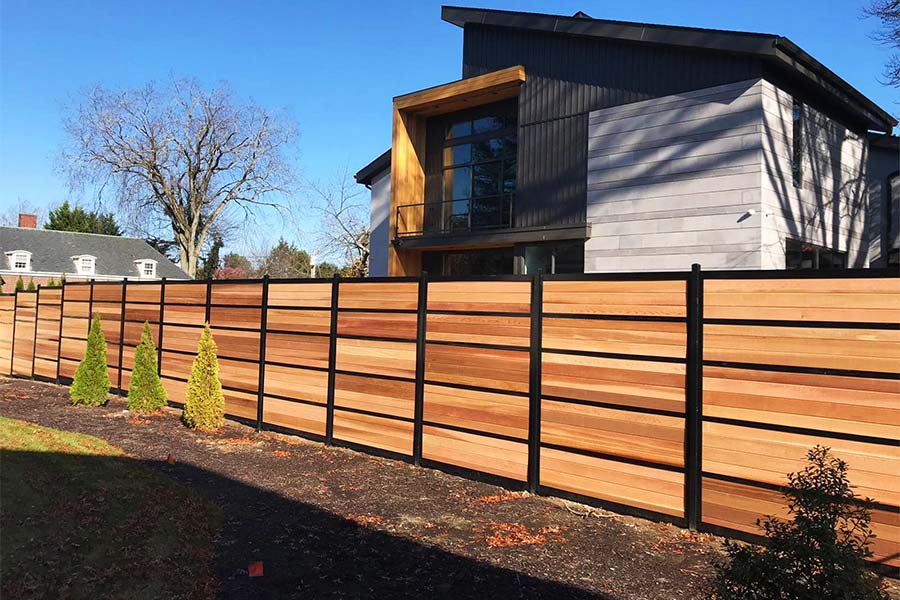All Categories
Featured

When intending to set up a fence around your residential property, one of the first actions is comprehending the allowing requirements in your location. Below's what you require to know about getting the needed authorizations for your fence installation.
Why Do You Required a License for a Fencing? A permit is commonly needed for fence setups to guarantee compliance with regional building ordinance, zoning legislations, and safety laws. Permitting assists regional authorities preserve uniformity in neighborhood visual appeals, safety and security, and environmental factors to consider. It additionally ensures that the fence does not interfere with energy lines or public areas, and that it sticks to height and limit constraints.

Typical Authorizations Needed for Fencing Installation. Structure Permit. The majority of locations need a building permit for fence installment, specifically if the fencing exceeds a certain elevation (usually over 6 feet) or is made from non-standard products. This license ensures that your fence follows regional building ordinance. In some locations, the building division will certainly inspect the website to make sure that the fence meets safety and structural criteria.
Zoning License. Zoning authorizations are made to make sure that your fence abides by regional zoning laws, including obstacles from property lines, easements, and rights-of-way. Zoning regulations differ from city to city, and in many cases, your fence might need to be held up a particular variety of feet from the walkway or road. If your fence is in a historical area or various other particularly assigned areas., a zoning license might additionally be necessary.

Fence License. In some areas, a certain "fencing authorization" might be required. When building a fence for residential properties, this is usually required. The city government may define the height, material, and design of the fencing to guarantee it blends well with the bordering neighborhood. Some cities limit chain-link fences in front backyards or have specific regulations for personal privacy fencings.
HOA Authorization. If your home is part of a property owners organization (HOA), you might require approval before installing a fencing. HOA guidelines usually consist of particular regulations regarding the kind, elevation, color, and materials for fencings to keep the community's visual appeals. HOA regulations can be more stringent than city codes, so constantly inspect their standards before relocating forward.
Easement or Energy Licenses. If your fencing will certainly be near or across an easement (such as an energy easement), you may require to get authorization from the energy firm or various other entities that regulate the land. This is especially important if you plan to mine fence posts, as it guarantees you will not damage below ground utilities like power, water, or gas lines.
How to Discover What Allows Are Needed. The most effective way to figure out which authorizations are required for your fencing installation is to call your local structure department or local office. They can supply you with details info concerning requirements in your area. Below are a few steps you can require to learn:
Examine the City or Area Internet site: Lots of local federal governments offer information concerning fence installation permits online. Look for structure or zoning areas on their site. Call or Browse Through City Government Workplaces: If the information is not easily available online, calling or visiting the local workplace in person can clarify what's needed. Get In Touch With an Expert Specialist: If you're uncertain or overloaded by the process, a regional specialist or fence installation business can aid in browsing the permitting process, as they know with regional policies. What Happens If You Don't Get a License? Falling short to get the required licenses can cause a selection of effects. In lots of areas, you might encounter fines, and your fencing could be purchased to be gotten rid of. Furthermore, if you offer your residential property in the future, the lack of proper permits can be a warning for customers and influence the sale. Permitting ensures that your fencing is compliant and aids stay clear of future complications.
Verdict. Prior to mounting a fencing around your home, it's vital to check whether an authorization is needed in your area. Structure permits, zoning permits, HOA authorization, and utility approvals might all contribute in your fencing installment procedure. Putting in the time to research and acquire the required authorizations will not only make certain that you're adhering to neighborhood guidelines, but likewise help protect your investment and preserve the honesty of your property.
Latest Posts
Find the Top Auto Repair Deals in Montclare, Chicago
Published May 24, 25
1 min read
Trustworthy Overhead Door Solutions for Houses and Businesses
Published May 23, 25
1 min read
Improve Your Residential Property with Overhead Door Systems
Published May 22, 25
1 min read